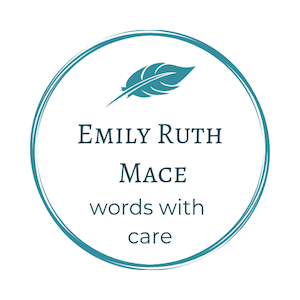Today, March 4th, is National Grammar Day! Even though this has me thinking of “mind your p’s and q’s,” or “dot your i’s and cross your t’s”, I’m thinking, instead, of how language and words can be used carefully and to show care—a topic worthy of attention under the banner of grammar.
Several images and stories that I’ve seen in the past few weeks remind me strongly of why it’s important to think of words as acts of care. Language matters; the words we use matter. They have the power to heal or to harm, so we might as well use them well.
Solution-focused language in parenting
Take, for example, this image of a chart comparing “problem-focused” language with “solution-focused” language related to kids’ behaviors. A friend shared this photo on Facebook, as soon as I saw it, I thought, now *that’s* an example of words with care. Choose the right words, and they help a child develop a healthy self-concept. Choose other words, and that health may take longer to emerge, if ever.

This list looks so important that I am going to find a color printer, print it out and hang it on my fridge, where I, my husband, and my children can all see it. That way, if I feel like my child is acting a bit, say, demanding, I might more easily think before I speak and call her “outspoken, knowing what she wants.” (More likely, she’ll read the list and remind me if I draw from the wrong column–and I’m thankful that many of the left-column words don’t apply to my children very often. Some of them, though…!)
Words shape our perceptions…. even of things that seem set in stone
Take, for example, the recent coronavirus outbreak in China. You’d think that something as tangible (with the right technology) as a virus would be hard to bend and twist to harmful purposes, but I’ve been troubled about the coverage of this disease since the beginning, with its emphasis on Asia, China, Wuhan, and all these “foreign-seeming” places. Emphasizing the name and the location that way seemed like it was making the disease seem scarier, closer, and more threatening than it perhaps is. And I’m not the only one who thinks so. Take, for example, this NPR story, in which professor of Asian American studies Erika Lee suggests, “Would we be reacting in the same way if this was an outbreak of disease from – name a European country?”
Or this Salon.com article about the “‘Wuhan coronavirus’ and the racist art of naming a virus.”
Language can heal the world
This sign in the Portland, Oregon airport, at an outpost of the famous and wonderful Powell’s bookstore, summed it all up for me. They’d aimed this Toni Morrison quote towards the center of the terminal, from where I was walking, and its chalkboard familiarity jumped out at me as I aimed for the bookstore.

I snapped a picture. In just 12 words, the phrase captured my understanding of the power of words.
It matters what we call things—diseases, viruses, emotions, people, places, the loves of our lives, our hates, our fears. It matters how we name them. It matters what stories we tell and how we express them—and an editor can help yours shine. Words matter. Language and grammar matter. Make sure to use them with care.



